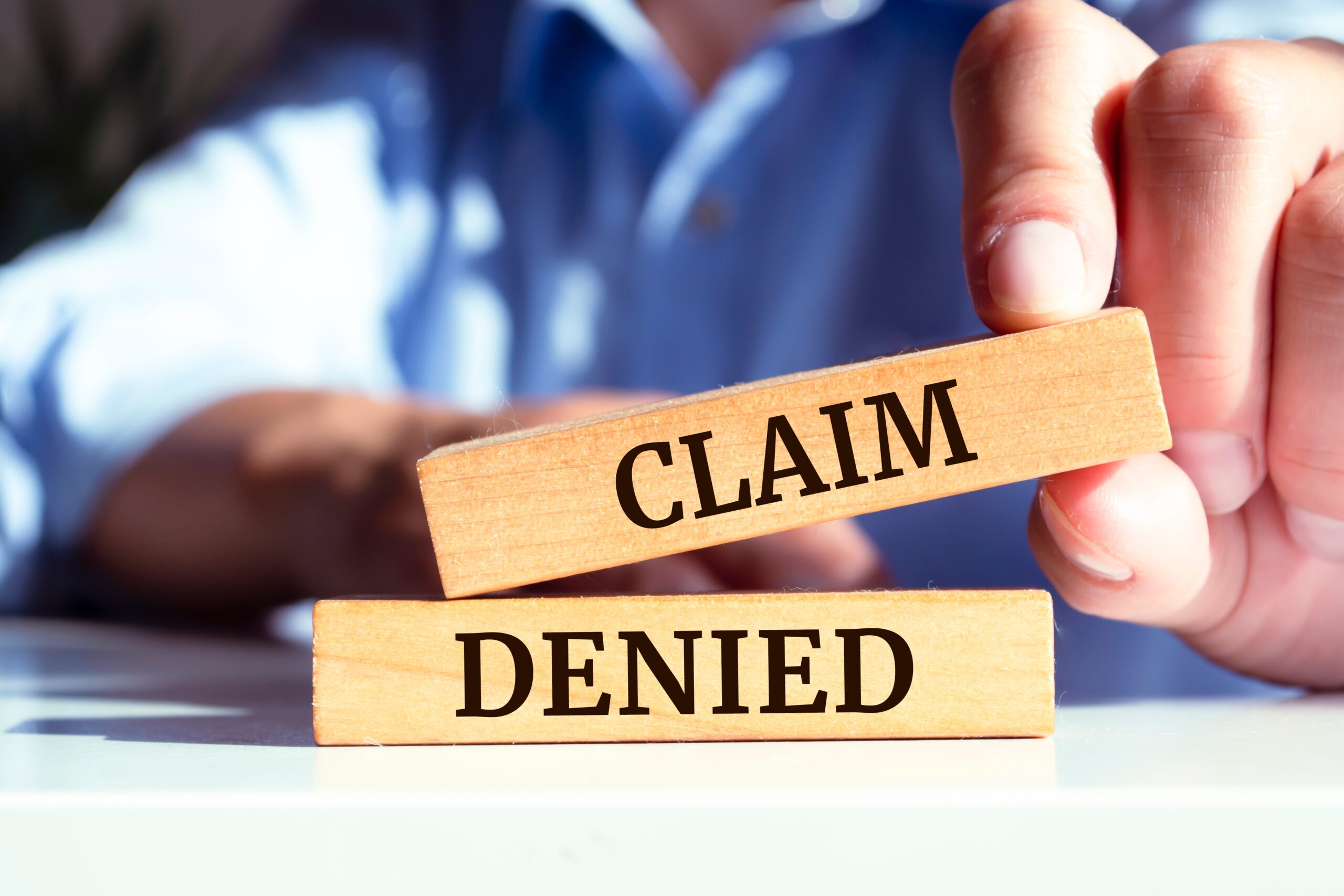Receiving a denial letter from an insurance company for your car accident claim is not the final word on the matter.
We know how disheartening it feels, but under California law, you have the right to challenge the insurer's decision and pursue compensation. Some initial denials can be overturned with the right approach and sufficient documentation.
If an insurance company has denied your car accident claim in California, you do not have to face them alone. The Law Offices of Mickey Fine—a trusted car accident lawyer in Bakersfield, California—knows how to protect the rights of accident victims because we have been handling these cases for years.
For immediate help, call our office at (661) 333-3333 for a free consultation.
Why Do Insurance Companies Deny Car Accident Claims in California?
A denial is a frustrating setback, but understanding the "why" behind it is the first step toward building a successful appeal. Thankfully you don’t need to do much detective work here—insurers are required to provide a reason for their decision, and this reason will guide your next steps. These denials typically fall into several common categories, each with its own set of challenges and potential remedies.
Common Reasons for Claim Denials
- Disputes Over Fault: The insurer may argue that their policyholder was not responsible for the accident. California uses a comparative negligence system, which means you can still recover damages even if you are partially at fault. An insurer might deny a claim entirely by placing 100% of the blame on you, an assessment we can challenge by gathering evidence to prove the other party’s liability.
- Policy Exclusions or Lapsed Coverage: The claim might be for something not explicitly covered under the terms of the insurance policy. For instance, if the policyholder was using their personal vehicle for commercial purposes without the proper coverage. A claim may also be denied if the policy was inactive at the time of the crash due to a missed payment.
- Lack of Sufficient Evidence: The insurer might claim you did not provide enough documentation to support your injuries or the value of your losses. We can help you overturn this decision by collecting medical records, official reports, photographic evidence of the scene and damages, and proof of any lost wages resulting from the accident.
- Delays in Reporting the Accident or Seeking Medical Care: Insurance companies frequently view delays as a red flag. They may argue that if you waited to see a doctor, your injuries were not caused by the accident. In California, you are also required to report any accident involving injury, death, or property damage over $1,000 to the DMV within 10 days using an SR-1 form. Failing to do this can introduce complications into your claim.
- Inconsistent Statements: Any discrepancies between your initial statement to the adjuster, the police report, and your medical records can be used by the insurer to question the validity of your claim. It is important to be precise and consistent in all your communications. This is why having an attorney handle communications is so beneficial.
- Pre-Existing Injuries: A common tactic is for the company to allege that your injuries existed before the accident and were not caused or aggravated by the collision. They will scrutinize your medical history for any evidence of prior conditions to support this denial.
What Are My Immediate Steps After a Claim Denial?
Step 1: Hire an Attorney

The most important step you can take after receiving a claim denial is to consult with an experienced personal injury attorney immediately. Insurance claim denials involve complex legal and procedural issues that can make or break your case. Trying to figure all of this out without making a single mistake, and while still recovering from your injuries, risks losing out on the full amount of the compensation you need.
Step 2: Request the Denial in Writing
If you only received a verbal denial over the phone, your attorney will demand a formal, written explanation. An insurance company is legally required to provide the specific reasons for the denial. This letter must reference the exact policy language or legal principle they are using to justify their decision.
Step 3: Review Your Insurance Policy Carefully
Once you have the denial letter, you and your attorney will carefully read the sections of your policy that the insurer cited. Insurance policies are complex contracts, filled with dense language, but your attorney will help explain the terms that are foundational to your appeal. Pay close attention to coverage limits, definitions, exclusions, and your duties after a loss. It is also worth noting that as of January 1, 2025, California's minimum auto insurance coverage limits increased, providing more potential protection for accident victims. Your policy should reflect these new, higher limits if it was issued or renewed after this date.
Step 4: Write a Formal Appeal Letter
Your attorney will draft this for you. Here’s what it will look like:
- State Your Purpose: We clearly state that you are appealing the denial of your claim and include your claim number for reference.
- Counter Their Reasons: We address each reason for the denial one by one, methodically explaining why you disagree and referring to the specific evidence that supports your position.
- Reference Policy Language: If we believe the insurer misinterpreted its own policy, we point that out directly. We quote the relevant sections of the policy to support your argument.
- Include All Supporting Documents: We attach copies (never sending your originals) of every document that strengthens your case. This includes the police report, all medical records and bills, repair estimates, photographs, and any correspondence.
Step 5: File a Complaint with the California Department of Insurance (CDI)
If your direct appeal to the insurance company is unsuccessful, you have another recourse. Your attorney can file a formal complaint with the CDI. The CDI is the state agency responsible for overseeing insurance companies and investigating consumer complaints regarding issues like improper claim denials, delays, and other unfair practices. While the CDI may not be able to force the insurer to pay your specific claim, an investigation can put significant pressure on the company and uncover patterns of misconduct that may help your case.
Step 6: Be Aware of the Statute of Limitations
A denial from the insurance company does not stop the clock on your legal deadlines. This is a fact that many people overlook. In California, you generally have a two-year statute of limitations to file a lawsuit for personal injuries from a car accident. If you fail to file a lawsuit within this two-year window, you may lose your right to seek compensation in court forever, regardless of the strength of your case. An insurer may even drag out the appeals process in the hope that you miss this critical deadline.
What if the Insurance Company Is Acting in Bad Faith?
In California, an insurance policy is more than a simple contract. It includes an "implied covenant of good faith and fair dealing." In simple terms, this is a legal duty that requires an insurance company to act fairly and honestly when it handles your claim. It cannot put its own financial interests ahead of its obligation to you, the policyholder.
An insurance company that acts unreasonably or without proper cause to deny benefits may be acting in bad faith. This is a serious violation that gives you grounds for legal action beyond a simple breach of contract. Bad faith is not about an honest mistake or a reasonable disagreement over the value of a claim. It involves conduct that is deliberately misleading, evasive, or unfair.
Examples of Insurance Bad Faith
Recognizing bad faith tactics is the first step toward holding an insurer accountable for them. Some common examples include:
- Failing to Conduct a Thorough Investigation: The insurer has a duty to look for evidence that supports paying your claim, not just for evidence that helps them deny it. A one-sided or superficial investigation is a sign of bad faith.
- Unreasonable Delays in Processing Your Claim: Taking an excessively long time to investigate, communicate with you, or make a decision can be a bad faith tactic designed to frustrate you into dropping the claim or accepting a lower settlement.
- Not Providing a Reason for the Denial: An insurer cannot simply deny your claim without a clear, written explanation that refers to the policy language.
- Misrepresenting Facts or Policy Provisions: This includes intentionally twisting the language in the policy or misstating the facts of the accident to avoid paying a legitimate claim.
- Offering a "Lowball" Settlement: Pressuring a claimant to accept an amount that is significantly less than what the claim is reasonably worth. This tactic was a focus of scrutiny after the pandemic, where California insurers were found to have overcharged motorists by as much as $5.5 billion due to a sharp drop in accidents, yet were slow to provide fair refunds or settlements to policyholders.
What You Can Do About Bad Faith
If an insurer is found to have acted in bad faith, you may be able to sue them for more than just the benefits owed under the policy. You may also be entitled to recover damages for other harms their conduct caused. This can include compensation for emotional distress, attorneys' fees, and, in some cases, punitive damages, which are intended to punish the company and deter similar conduct in the future.
FAQ for Denied Car Accident Claims
What if the other driver had no insurance?
If the at-fault driver is uninsured, your own Uninsured Motorist (UM) coverage should apply. This is a part of your own auto policy designed for this exact situation. It's important to know your rights here, as a denial from your own insurer in this scenario could potentially be an act of bad faith. An uninsured motorist claim proceeds similarly to a claim against the other driver, except you are dealing with your own insurance company.
Do I have to pay a lawyer upfront to handle my appeal?
No. The Law Offices of Mickey Fine operates on a contingency fee basis. In simple terms, this means we only get paid if we successfully recover compensation for you. We advance all costs related to your case, and our fee is a percentage of the final settlement or verdict. There are no upfront costs or hourly fees for you to worry about.
Will my insurance rates go up if I appeal a denial from my own company?
It is illegal for an insurance company in California to raise your rates for filing a claim for an accident that was not your fault. If you are appealing a denial of an Uninsured Motorist claim where the other party was 100% at fault, you should not be penalized with higher premiums. If you have concerns about this, we can address them with you.
Take Control After a Claim Denial

A denial letter from an insurance company is not the end of the road; it is a detour that requires a better map and a skillful guide. You do not have to let an insurance company have the final say on your physical and financial recovery.
As an experienced personal injury lawyer in Bakersfield, California, The Law Offices of Mickey Fine has the experience to guide you through the complexities of the appeals process and pursue the full compensation available under California law.
Don't wait and risk losing your rights. Call us today at (661) 333-3333 or contact us online to schedule your free, no-obligation case review. We are here to provide the help you need.